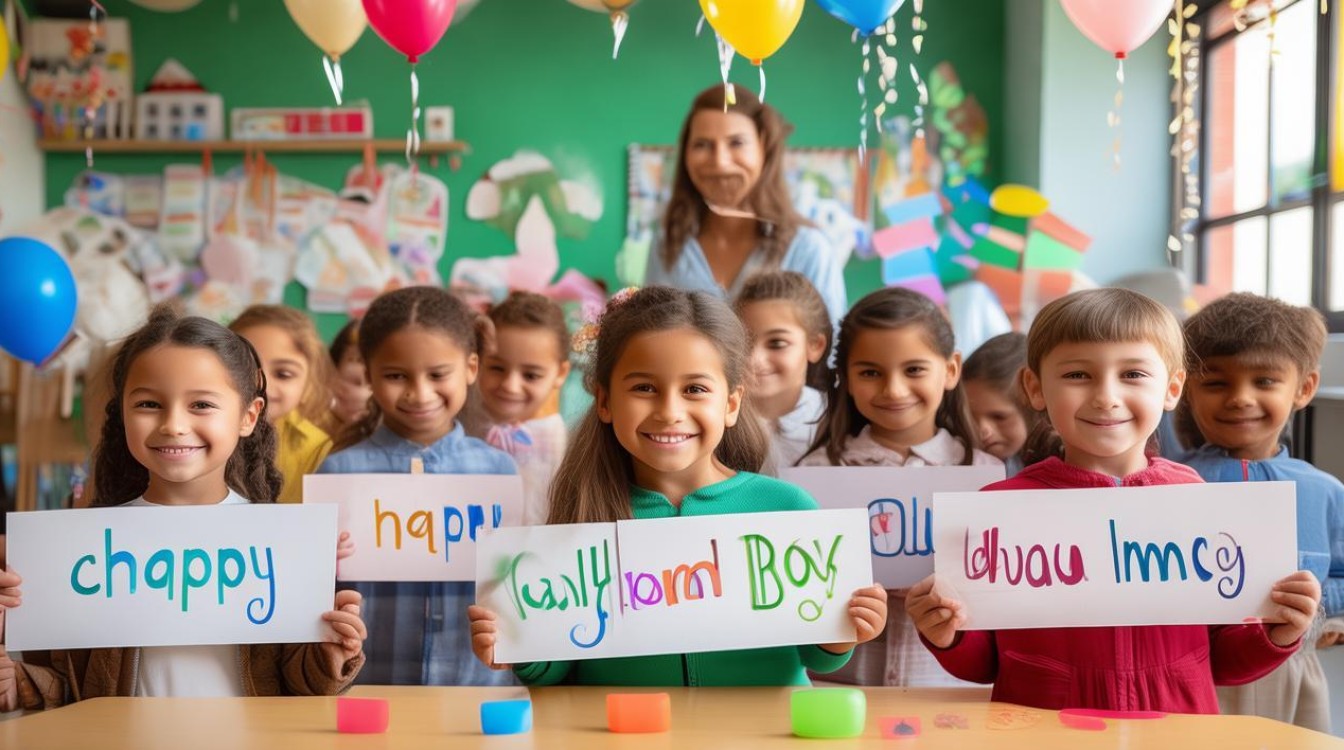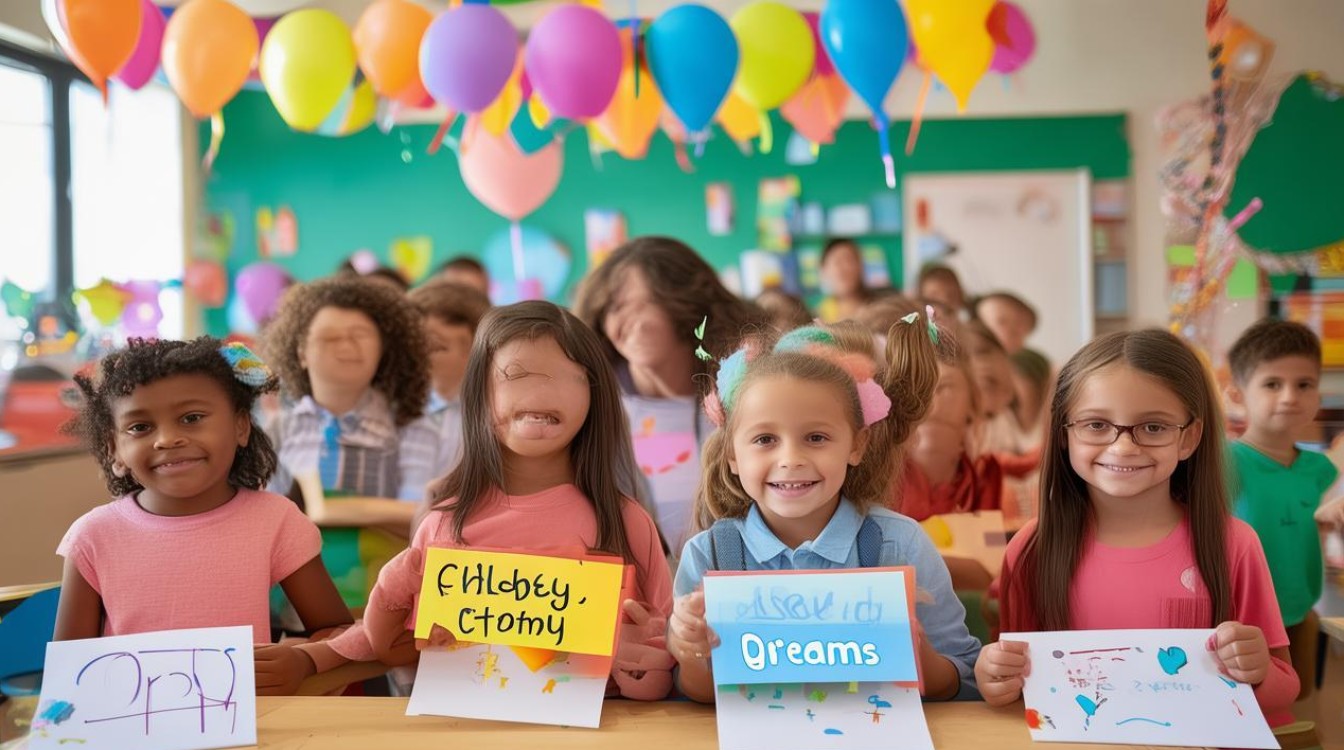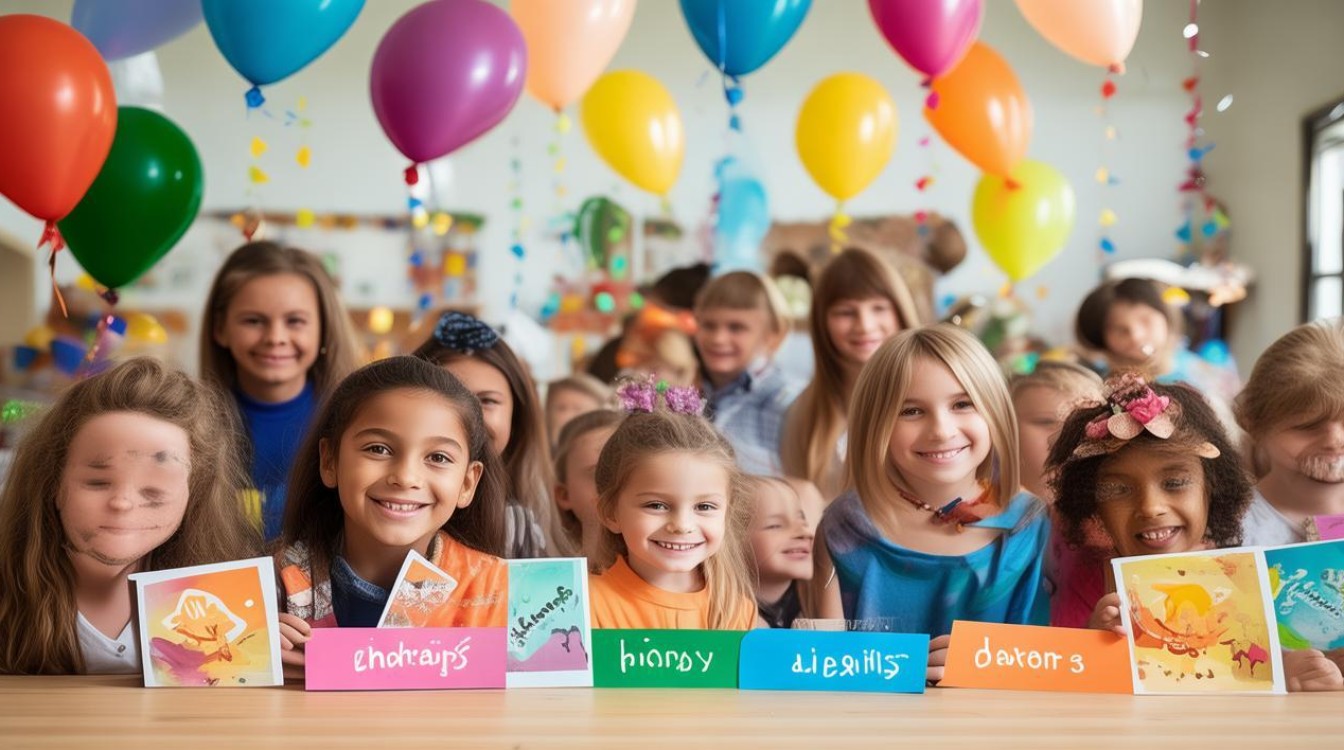Children's Day is a vibrant occasion dedicated to honoring the joy, innocence, and potential of young minds. Whether you're a parent, teacher, or simply someone who cherishes childhood, expanding your English vocabulary around this theme can deepen your appreciation for the celebration. Below is a carefully curated list of words and phrases that capture the spirit of Children's Day, along with their meanings and usage examples.

Core Vocabulary for Children's Day
Celebration (n.) /ˈsɛlɪˈbreɪʃən/
Meaning: A joyful event or activity marking a special occasion.
Example: The school organized a grand celebration for Children's Day with games and performances.
Innocence (n.) /ˈɪnəsəns/
Meaning: The pure, uncorrupted nature of children.
Example: Her laughter reflected the innocence of childhood.
Joy (n.) /dʒɔɪ/
Meaning: A feeling of great happiness.
Example: The children’s faces were filled with joy as they received their gifts.
Playfulness (n.) /ˈpleɪfəlnəs/
Meaning: A lighthearted, fun-loving attitude.
Example: The teacher encouraged playfulness during the storytelling session.
Creativity (n.) /ˌkriːeɪˈtɪvɪti/
Meaning: The use of imagination to produce original ideas.
Example: Art competitions on Children's Day help nurture creativity in young minds.
Laughter (n.) /ˈlæftər/
Meaning: The sound of amusement or happiness.
Example: The playground echoed with the sound of children’s laughter.
Imagination (n.) /ɪˌmædʒɪˈneɪʃən/
Meaning: The ability to form mental images of things not present.
Example: Children's Day activities often spark imagination through storytelling and crafts.
Happiness (n.) /ˈhæpinəs/
Meaning: A state of well-being and contentment.
Example: Seeing the children’s happiness was the best part of the day.
Friendship (n.) /ˈfrɛndʃɪp/
Meaning: A bond of mutual affection between people.
Example: Children's Day reinforces the importance of friendship through group activities.
Kindness (n.) /ˈkaɪndnəs/
Meaning: The quality of being considerate and compassionate.
Example: Teachers emphasized kindness by organizing a charity drive for underprivileged kids.

Activities and Events Vocabulary
Carnival (n.) /ˈkɑːrnɪvəl/
Meaning: A festive event with games, rides, and entertainment.
Example: The school carnival on Children's Day featured face painting and balloon animals.
Puppet Show (n.) /ˈpʌpɪt ʃoʊ/
Meaning: A performance using puppets to tell a story.
Example: The kids clapped excitedly during the colorful puppet show.
Treasure Hunt (n.) /ˈtrɛʒər hʌnt/
Meaning: A game where participants search for hidden items.
Example: The treasure hunt kept the children engaged and excited.
Storytelling (n.) /ˈstɔːriˌtɛlɪŋ/
Meaning: The art of narrating tales to entertain or educate.
Example: The librarian captivated the children with animated storytelling.
Arts and Crafts (n.) /ɑːrts ənd kræfts/
Meaning: Creative activities involving making things by hand.
Example: The arts and crafts station was a favorite among the little artists.
Face Painting (n.) /feɪs ˈpeɪntɪŋ/
Meaning: Decorating the face with colorful designs.
Example: The queue for face painting grew longer as kids chose their favorite designs.
Balloon Twisting (n.) /bəˈluːn ˈtwɪstɪŋ/
Meaning: Shaping balloons into animals or objects.
Example: The clown amazed everyone with his balloon twisting skills.
Sing-Along (n.) /ˈsɪŋ əˌlɔːŋ/
Meaning: A group singing session where everyone joins in.
Example: The sing-along session had kids dancing and clapping to nursery rhymes.
Dance Performance (n.) /dæns pərˈfɔːrməns/
Meaning: A choreographed display of dance moves.
Example: The dance performance by the kindergarteners was adorable.
Talent Show (n.) /ˈtælənt ʃoʊ/
Meaning: An event where children showcase their skills.
Example: The talent show revealed hidden singing and magic acts among the students.

Emotional and Developmental Terms
Curiosity (n.) /ˌkjʊriˈɑːsɪti/
Meaning: A strong desire to learn or know something.
Example: Children's Day activities should encourage curiosity through interactive learning.
Wonder (n.) /ˈwʌndər/
Meaning: A feeling of amazement and admiration.
Example: The science experiment filled the kids with wonder.
Confidence (n.) /ˈkɒnfɪdəns/
Meaning: Belief in one’s abilities.
Example: Participating in the play boosted her confidence.
Empathy (n.) /ˈɛmpəθi/
Meaning: The ability to understand others' feelings.
Example: Role-playing games help develop empathy in children.
Resilience (n.) /rɪˈzɪliəns/
Meaning: The capacity to recover quickly from difficulties.
Example: Team sports teach resilience and perseverance.
Symbolic and Cultural Terms
Balloon (n.) /bəˈluːn/
Meaning: An inflatable rubber bag used as decoration or toy.
Example: Bright balloons floated above the party area.
Confetti (n.) /kənˈfɛti/
Meaning: Small pieces of colored paper thrown in celebrations.
Example: The kids cheered as confetti rained down at the end of the event.
Piñata (n.) /pɪnˈjɑːtə/
Meaning: A decorated container filled with candies, broken open as a game.
Example: The piñata burst open, scattering sweets everywhere.
Festive (adj.) /ˈfɛstɪv/
Meaning: Relating to a celebration; cheerful.
Example: The hall was decorated in a festive manner with streamers and lights.
Tradition (n.) /trəˈdɪʃən/
Meaning: A custom passed down through generations.
Example: The annual Children's Day parade is a beloved tradition in our town.

Educational and Inspirational Words
Learning (n.) /ˈlɜːrnɪŋ/
Meaning: The acquisition of knowledge or skills.
Example: Fun learning activities make education enjoyable.
Discovery (n.) /dɪˈskʌvəri/
Meaning: The act of finding something new.
Example: Science experiments on Children's Day led to exciting discoveries.
Encouragement (n.) /ɪnˈkɜːrɪdʒmənt/
Meaning: Support that inspires confidence.
Example: Parents offered encouragement as their kids performed on stage.
Potential (n.) /pəˈtɛnʃəl/
Meaning: The capacity to develop into something great.
Example: Every child has unique potential waiting to be unlocked.
Inspiration (n.) /ˌɪnspəˈreɪʃən/
Meaning: A motivating influence.
Example: The guest speaker’s story was an inspiration to the young audience.
Final Thoughts
Children's Day is more than just a date on the calendar—it’s a celebration of what makes childhood magical. By incorporating these words into discussions, lesson plans, or event descriptions, we honor the essence of this special day. Whether through laughter, creativity, or learning, every child deserves moments that shape their brightest memories. Let’s continue fostering environments where young minds thrive, explore, and dream without limits.



